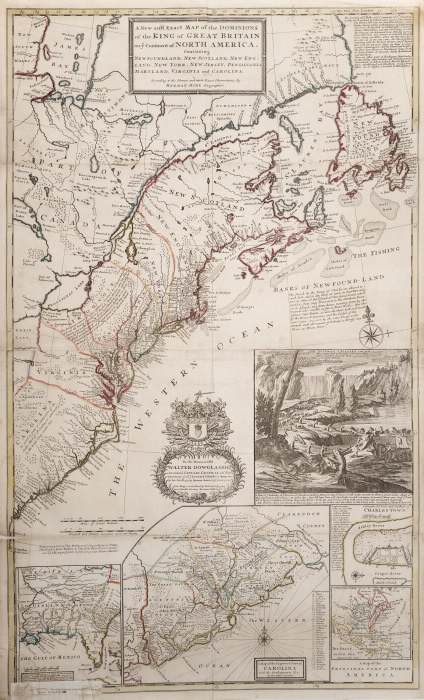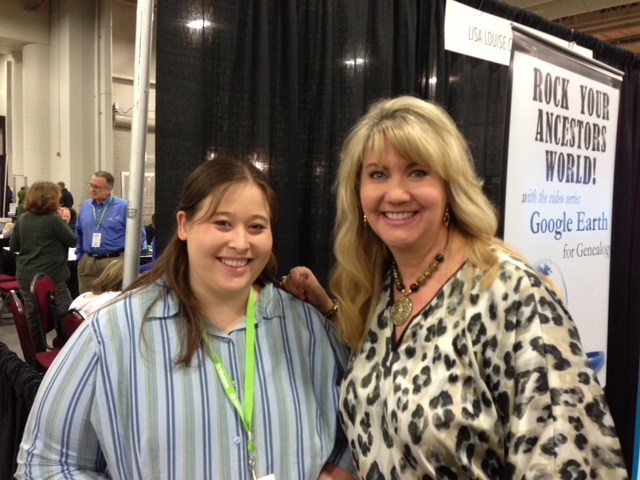by Lisa Cooke | Dec 6, 2013 | 01 What's New, British, Canadian, Records & databases
If you’ve got British colonial roots in North America, you know how tough it can be to learn more about your family during that time. That’s why I was excited to read a

The Beaver Map, 1715. By Special Collections Toronto Public Library. Flickr, via Wikimedia Commons.
recent article in the Harvard Gazette.
According to the article, plans are afoot to digitize and make available millions of British colonial documents. Yep, you read that right. Millions. There are still that many colonial-era documents sitting largely untouched in public and private archives, far from the reach of the everyday genealogist.
The Gazette reports not one but two major digitizing projects underway relating to British colonial documents in the U.S. Harvard University is leading the first project, which is already funded and underway. It will capture around 30 million pages of 17th- and 18th-century material from more than 1600 manuscript collections at 12 different Harvard repositories.
As if that’s not good enough news, a much larger project is in the works, too. A larger-scale Colonial Archives of North America has plans to digitally assemble pre-Revolutionary War material from Harvard and several historical societies, archives and Libraries in New England, New York and beyond (including Montreal). I was pleased to see that records relating to businesses, poverty, public health and indigent care will form part of the anticipated collection. These kinds of documents talk about everyday folks and their living conditions. Just what we want for our colonial genealogy. This second project is not funded yet but researchers are confident it will be.
Meanwhile, check out online resources like these for colonial documents:
by Lisa Cooke | Apr 5, 2013 | 01 What's New, Canadian, FamilySearch, Research Skills
“One of the most incredible and likely true stories I’ve ever seen!” announced Dave Obee as he met with Genealogy Gems Listener Sarah Stout, the winner of our #RootsTech 2013 conference registration contest.
The question to contestant was “who’s class would you most like to attend at RootsTech?” Sarah’s answer was Dave Obee, and that was because she was  running up against a Canadian brick wall in her family history research, and Dave is a Canadian Research Guru!
running up against a Canadian brick wall in her family history research, and Dave is a Canadian Research Guru!
Read more about Sarah’s incredible genealogical brick wall:
WATCH THE VIDEO
In my new video at the Genealogy Gems YouTube channel I get the two together and Dave dishes up 10 terrific tips that will not only help Sarah, but are sure to prove their worth in your own family tree climbing.
Dave Obee’s Top 10 Tips:
1. Create a Timeline – “plot her life…it’s easier to see the holes.”
2. Understand Geography – “plot movements”
3. Find Every Possible Record
4. Understand How Records Were Created
5. Read Every Local Story in Newspapers at that Time
6. Tap into Local Knowledge – “Locals know more” (historical and genealogical societies)
7. Go There if You Can in Person
8. Look for Negative Proof
9. Collaborate with Other Researchers
10. Be Diligent About Proof
Resources Mentioned in the video:
Subscribe to the Genealogy Gems YouTube Channel for free to receive instant updates of all of my latest videos from RootsTech 2013 and beyond.
by Lisa Cooke | Feb 2, 2013 | 01 What's New
Many genealogists yearn for a career in a family history related field. Here’s an opportunity with APG:
WESTMINSTER, Colo., 1 February 2013—The Association of Professional Genealogists (APG®) is seeking qualified candidates for the managing editor position of its quarterly publication, Association of Professional Genealogists Quarterly (APGQ). APGQ has served the genealogy community since 1979 with staff-written and contributed articles covering all aspects of the profession.
The responsibility of the managing editor is the overall production of the APGQ, in keeping with the magazine’s high quality style and compelling content. This includes soliciting articles, working with contributing writers, determining the themes of each issue, and editing and approving all content. Interested parties should have extensive knowledge of copyright law and genealogy, as well as grammar and writing standards.
The current managing editor, Matthew Wright will continue to serve the publication as layout editor, a new position. “In the last few years, APGQ has grown both in scope and in outreach,” said Kenyatta D. Berry, president of APG. “It now makes sense to divide the responsibilities between two professionals. We’re excited about these changes and what they mean for the publication and our members.”
How to Apply
Applicants should have publishing management experience or equivalent. Please see http://www.apgen.org/publications/APGQ_Managing_Editor.html for a full job description.
Interested parties should send their cover letters and resumes to admin@apgen.org by the end of the day, 15 February 2013. Please do not send work samples with the initial inquiry. Further instructions on uploading samples will follow, if needed.
The new managing editor will also assist the APG eNews editor in coordination of messaging and content. The managing editor is a paid, contractor position. For more information on APGQ, see http://www.apgen.org/publications/index.html .
About the Association of Professional Genealogists
The Association of Professional Genealogists (www.apgen.org), established in 1979, represents more than 2,600 genealogists, librarians, writers, editors, historians, instructors, booksellers, publishers, and others involved in genealogy-related businesses. APG encourages genealogical excellence, ethical practice, mentoring, and education. The organization also supports the preservation and accessibility of records useful to the fields of genealogy and history. Its members represent all fifty states, Canada, and thirty other countries.
by Lisa Cooke | Jan 4, 2013 | 01 What's New, Canadian
 The CBC Radio One show Daybreak South with Chris Walker features an interview with Ann ten Cate, museum archivist and genealogy search expert at the Royal B.C. Museum in Victoria, British Columbia.
The CBC Radio One show Daybreak South with Chris Walker features an interview with Ann ten Cate, museum archivist and genealogy search expert at the Royal B.C. Museum in Victoria, British Columbia.
The interview highlights the original historical records included in their new online database, and reveals why the museum decided to make them available online.
Head to the Museum’s website to search their indexes to British Columbia births (1854-1903), marriages (1872-1936), deaths (1872-1991), colonial marriages (1859-1872) and baptisms (1836-1888).


 running up against a Canadian brick wall in her family history research, and Dave is a Canadian Research Guru!
running up against a Canadian brick wall in her family history research, and Dave is a Canadian Research Guru!




